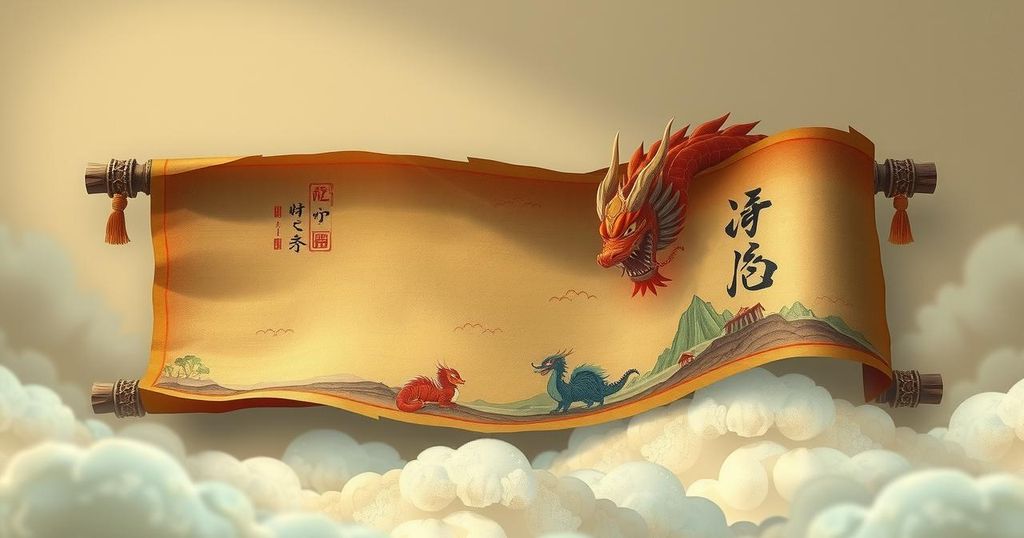Nationalism Surrounds Ne Zha 2 as Chinese Cinema Gains Global Traction
“Ne Zha 2” has become the world’s highest-grossing animated film, sparking national pride in China. Fans are rallying against competitors like “Captain America: Brave New World,” which they believe must fail against local productions. While the film’s success is celebrated, its emergence as a nationalist symbol brings concerns about the cultural discourse surrounding it.
The animated film “Ne Zha 2,” which chronicles the adventures of a legendary boy battling demons, has recently garnered significant acclaim, becoming the highest-grossing animated film in history with earnings surpassing 12.3 billion yuan (approximately $1.7 billion). This success has sparked a surge of national pride in China, with fans rallying around the film and criticizing its detractors, whom they accuse of being insincere critics motivated by personal agendas or external influences.
As “Ne Zha 2” continues to thrive, many fans exhibit strong nationalistic sentiments towards its competition, particularly targeting “Captain America: Brave New World,” which is seen as a direct rival. A slogan circulating on social media encapsulates this fervor: “I don’t care if Ne Zha 2 can survive overseas, but Captain America 4 must die in China.” This sentiment reflects the desire for domestic films to succeed over Hollywood counterparts in the Chinese market.
The backlash against American films is palpable, with many reveling in the perceived underperformance of “Captain America 4,” which has earned only $10.6 million in China despite a broader global gross of $92 million. An online essay suggested that this trend indicates deeper issues with American media appeal in China, arguing that the United States lacks genuine superhero narratives that resonate with viewers.
Cinema responses have mirrored this nationalistic sentiment, with reports of some theaters in China omitting showings of “Captain America 4” to promote “Ne Zha 2” instead. Fans are also voicing frustration over the limited exhibition opportunities for “Ne Zha 2” in North American markets, which they believe favor other films rather than showcasing the successful animated feature, particularly during the Lunar New Year holiday release window.
“Ne Zha 2” premiered on January 29 and quickly surpassed the $1 billion mark within weeks, marking a significant achievement given the challenges posed by a sluggish economy. This film is celebrated as a milestone in Chinese cinema, showcasing that domestically produced films can compete on a global scale, especially amidst a landscape that has historically favored Hollywood productions.
While the film’s success appears largely domestic—with over 99% of its revenue originating from within China—it has become a barometer of national pride. Chinese audiences are proudly proclaiming their support for the film, often at the expense of detractors who have faced ridicule for not supporting the patriotic cinema.
Critiques of “Ne Zha 2” have been met with hostility, with those raising concerns about its narrative flaws being labeled as unpatriotic. Discussions around the film have devolved into animosity between fervent supporters and critics, overshadowing the overall cultural discourse. Some observers are concerned about the implications of such polarizing nationalism on the broader cultural environment.
In summary, “Ne Zha 2” has emerged as a symbol of Chinese national pride and cinematic success, challenging Hollywood dominance. The fervent support for the film has led to intense scrutiny of rival films, particularly “Captain America: Brave New World,” reflecting broader themes of nationalism in cultural consumption. However, this phenomenon raises questions about the implications of such extreme patriotism on constructive cultural dialogue.
Original Source: www.bbc.com








Post Comment